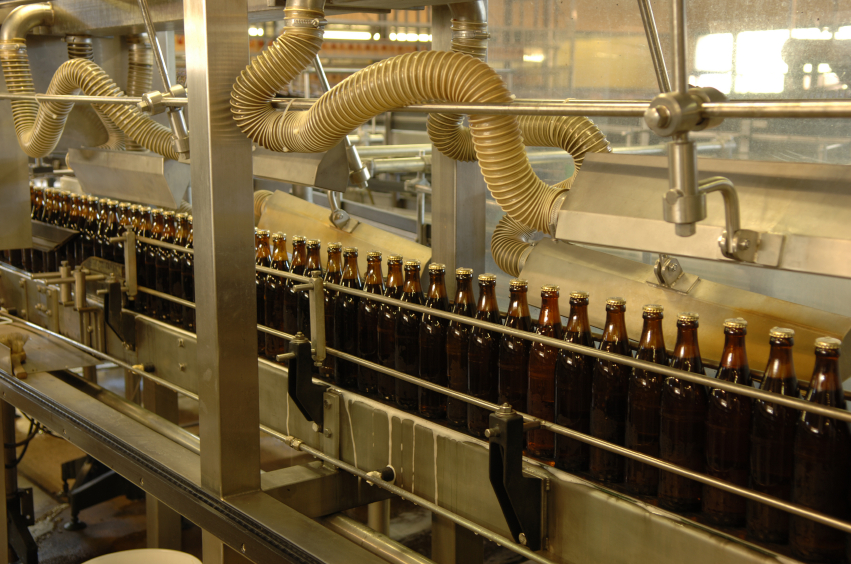I am a
student
institution
career professional
I need help with
Career Selection & Planning
Find your best-fit career, stream, course or college through advanced assessments and expert guidance.
college applications
Get admits from your dream colleges through end-to-end applications guidance for overseas and liberal arts universities.
I am interested in
Career Development Programs
State-of-the-art career assessments, expert guidance, and more to help students plan their career paths.
Career Advancement Programs
Expert-led MUN training programs, inspirational career talks and more to help students get that added edge.
I am interested in
Getting Certified (ICCC)
Become an International Certified Career Coach through a multi-level credentialing program by Mindler & CDA (USA).
Partnering with Mindler
Expand and grow your career counselling practice by leveraging the full force of Mindler’s career guidance platform.
Ready to discover your perfect career?
Enter your email id to take the Orientation Style test for free.
CAREER COUNSELLING PROGRAMS
Class 8-9
Stream & Subject SelectionAdvanced assessment & personalised guidance to help you select the perfect stream and subjects that align you to the right careers.
Class 10-12
Career Selection & PlanningExpert guidance & 5-dimensional assessment to help you discover your perfect career and choose the right course and college.
Graduates
Career Selection & Development5-dimensional assessment & superior guidance to help you discover your perfect career and choose the best next step.
Thank you for contacting us!
One of our team members will respond in 2 working days to resolve your query. If your query is urgent, you can alternatively call our career helpline.
Ready to pave your way to your dream college?
Leave your details below and we will get in touch shortly.
COLLEGE APPLICATION PROGRAMS
Overseas Application
End-to-end overseas admissions guidance to help you build the perfect applications for your target universities.
Liberal Arts Application
Comprehensive guidance and personalised application development for admissions to Liberal Arts programs.
Thank you for contacting us!
One of our team members will respond in 2 working days to resolve your query. If your query is urgent, you can alternatively call our career helpline.
Ready to give students the best of career guidance?
Leave your details below and we will get in touch shortly.
Career Development Programs
Career Development &
Planning Ecosystem
State-of-the-art assessment & end-to-end career guidance to help students discover their perfect career.
Thank you for contacting us!
One of our team members will respond in 2 working days to resolve your query. If your query is urgent, you can alternatively call our career helpline.
Ready to give your students the added edge?
Leave your details below and we will get in touch shortly.
Career Advancement Programs
MUN Training Program
Expert-led training and comprehensive guidance sessions to help students excel at MUN conferences.
Mindler Talks
Career awareness and inspirational talks for students with professionals who have achieved success in their fields.
Thank you for contacting us!
One of our team members will respond in 2 working days to resolve your query. If your query is urgent, you can alternatively call our career helpline.
Ready to upgrade your career counselling skills?
Enter your email id to start your ICCC application.
Getting Certified (ICCC)
International Certified
Career Coach (ICCC)
A 3-month program with emphasis on global practices, experiential learning & career guidance tools.
Thank you for contacting us!
One of our team members will respond in 2 working days to resolve your query. If your query is urgent, you can alternatively call our career helpline.
Ready to grow as a counsellor?
Leave your details below and we will get in touch shortly.
Partnering with Mindler
Mindler Partner Program
World-class career assessment platform & tools to help you scale up your career counselling practice.
Thank you for contacting us!
One of our team members will respond in 2 working days to resolve your query. If your query is urgent, you can alternatively call our career helpline.
Breaking News
- Flexible Remote Work Opportunity for University Students: Earn $100–$250 Per Month ...Read More
- Ministry of Education and Sports Azerbaijan Government Scholarships For 2025-2026 Academic Year ...Read More
- Government Sponsorship Undergraduate Admission Lists 2025-26 for Makerere University ...Read More
- Ministry of Education And Sports: Egyptian Government Scholarships 2025-2026 Academic Year ...Read More
- Ground Breaker Full Scholarship for girls to study Software Engineering 2025 July Intake ...Read More
- Tony Elumelu Foundation Entrepreneurship Programme (TEEP) 2025 for young African Entrepreneurs ...Read More
- DESIGNING FUTURES 2050 International Design Competition 2025 (€15,000 prize) ...Read More
- Ground Breaker Full time Scholarship for girls to study Software Engineering 2025 Intake ...Read More
- Ministry of Education And Sports Algerian Vocational Training Scholarships for 2024-2025 AY ...Read More
- Ministry of Education and Sports Advert for the Algerian Government Scholarships for 2024-2025 ...Read More
Production engineer
A production engineer’s job is to apply principles of engineering, manufacturing technology and management science to the production process in order to make it as efficient as possible. The profession overlaps significantly with industrial and manufacturing engineering.
Add to FavouritesA production engineer’s job is to apply principles of engineering, manufacturing technology and management science to the production process in order to make it as efficient as possible. The profession overlaps significantly with industrial and manufacturing engineering.
Daily Tasks/ Routine Activities
1. Production engineer will meet with manufacturing employees to understand any inefficiencies or safety-related problems that could harm individuals or cause the production process to stall.
2. He or she meets with leaders to provide any updates on the process that need to be relayed to customers.
3. Depending on the nature of the work, a production engineer’s job can include the application of machine tools, automation, machining systems, fixtures, tool design, joining processes and castings.
4. The production engineer will typically work on ergonomics and operation research, manage materials and be involved in production planning, focusing on the efficiency of the manufacturing system as a whole.
5. The production engineer will also meet with staff to understand the progress of efficiency-related initiatives and their performance in lowering the overall cost, while delivering the product the customers expect.
6. While the production engineer’s actual involvement with the customer is limited, if any, he or she will understand the customer’s needs and will work to make sure those needs and expectations are fully met.
7. They work closely with business leaders, as well as employees involved in the manufacturing process, to identify and resolve potential problems that could lead to equipment failure.
8. They are expected to implement cost-savings initiatives that remove non-value-added steps from the process, consequently saving time and money without impacting the quality of the finished product.
9. Production engineers ensure that the manufacturing process operates as smoothly as possible, reducing costly inefficiencies to a minimum.
10. They are responsible for making sure that the manufacturing equipment is in good working order to make as much product as the marketplace dictates, with as little leftover scrap as possible.
Key Knowledge areas
Production engineers have strong knowledge of the entire manufacturing process, from start to finish, as well as a working knowledge of the overall business needs and what customers need and expect.
A production engineer must have extensive knowledge of math, statistics, design, production systems, and science, as well as a good awareness of the market and consumer needs.
Top Skills
1. Production engineers are also expected to understand the changes in technology and assets to be able to improve their utilization, and to keep up with the increasingly sophisticated production methods that are constantly emerging in industry.
2. They need to possess organizational and leadership skills as they often supervise others as they perform the day-to-day work.
3. They need to be able to recommend solutions that address critical needs to senior management, who may not have the same level of technical knowledge of the manufacturing process as the production engineer.
Qualifications
Production engineers typically have a bachelor’s degree in an engineering field such as Mechanical Engineering. They also might have a business or management degree.
-
 Ministry of Education and Sports Commonwealth Scholarships for 2022-2023 Academic Year
Full Scholarship to Study In United Kingdom
Ministry of Education and Sports Commonwealth Scholarships for 2022-2023 Academic Year
Full Scholarship to Study In United Kingdom
Know more -
 Call For Applications for IRELAND-AFRICA Fellows program 2023-2024
Full Masters Scholarship in Ireland
Call For Applications for IRELAND-AFRICA Fellows program 2023-2024
Full Masters Scholarship in Ireland
Know more -
 Call for Applications for Graduate (Masters & Phd) Programmes 2022-2023 at Makerere University
Private Sponsored Masters Programs
Call for Applications for Graduate (Masters & Phd) Programmes 2022-2023 at Makerere University
Private Sponsored Masters Programs
Know more -
Govenment Admitted Students to other Tertiary Public Institutions for 2021-2022 List of Students admitted to tertiary public institutions on government sponsorship
Know more -
 Makerere University List of Students Admitted through Direct Entry on Private Sponsorship for Academic Year 2021-2022
Students Admitted for Academic Year 2021-2022 on Private Sponsorship
Makerere University List of Students Admitted through Direct Entry on Private Sponsorship for Academic Year 2021-2022
Students Admitted for Academic Year 2021-2022 on Private Sponsorship
Know more -
 Islamic Development Bank Undergraduate, Masters & Phd Scholarship Program 2022-2023
Full Scholarship to study abroad
Islamic Development Bank Undergraduate, Masters & Phd Scholarship Program 2022-2023
Full Scholarship to study abroad
Know more -
 Get World Class Online Diplomas with British Qualification
Join us for the information session
Get World Class Online Diplomas with British Qualification
Join us for the information session
Know more -
 Yunus & Youth Global Fellowship Program
Online Fellowship for Social Entrepreneurs
Yunus & Youth Global Fellowship Program
Online Fellowship for Social Entrepreneurs
Know more -
 Fully Funded Mastercard Foundation Scholars Program at USIU-Africa 2021 intake
Fully funded Scholarship to study at the United States International University
Fully Funded Mastercard Foundation Scholars Program at USIU-Africa 2021 intake
Fully funded Scholarship to study at the United States International University
Know more -
 Mandela Rhodes Foundation Postgraduate Scholarships 2020 to study in South Africa (Fully Funded)
Fully Funded Scholarship to Study in South Africa
Mandela Rhodes Foundation Postgraduate Scholarships 2020 to study in South Africa (Fully Funded)
Fully Funded Scholarship to Study in South Africa
Know more -
 Fully Paid Scholarships at Cavendish University for academic year 2021-2022
Study free of tuition at Cavendish University
Fully Paid Scholarships at Cavendish University for academic year 2021-2022
Study free of tuition at Cavendish University
Know more -
 African Leaders Scholarship at African Leadership University
Exceptional leaders and changemakers scholarship
African Leaders Scholarship at African Leadership University
Exceptional leaders and changemakers scholarship
Know more
Draw Inspiration from time tested individuals
Careers that are in the same career field as Production engineer
-
 Robotics engineer
Know more
Robotics engineer
Know more -
 Quality engineer
Know more
Quality engineer
Know more -
 Production engineer
Know more
Production engineer
Know more -
 Operations engineer
Know more
Operations engineer
Know more -
 Chemical Technician
Know more
Chemical Technician
Know more -
 Purchasing Agent, Except Wholesale, Retail, and Farm Products
Know more
Purchasing Agent, Except Wholesale, Retail, and Farm Products
Know more -
 Electrical and Electronics Drafter
Know more
Electrical and Electronics Drafter
Know more -
 Electronic Drafter
Know more
Electronic Drafter
Know more -
 Electrical Drafter
Know more
Electrical Drafter
Know more -
 Mechanical Drafter
Know more
Mechanical Drafter
Know more -
 Aerospace Engineering and Operations Technician
Know more
Aerospace Engineering and Operations Technician
Know more -
 Electrical and Electronic Engineering Technician
Know more
Electrical and Electronic Engineering Technician
Know more -
 Electronics Engineering Technician
Know more
Electronics Engineering Technician
Know more -
 Electrical Engineering Technician
Know more
Electrical Engineering Technician
Know more -
 Electro-Mechanical Technician
Know more
Electro-Mechanical Technician
Know more -
 Robotics Technician
Know more
Robotics Technician
Know more -
 Industrial Engineering Technician
Know more
Industrial Engineering Technician
Know more -
 Mechanical Engineering Technician
Know more
Mechanical Engineering Technician
Know more -
 Automotive Engineering Technician
Know more
Automotive Engineering Technician
Know more -
 Non-Destructive Testing Specialist
Know more
Non-Destructive Testing Specialist
Know more -
 Electrical Engineering Technologist
Know more
Electrical Engineering Technologist
Know more -
 Electromechanical Engineering Technologist
Know more
Electromechanical Engineering Technologist
Know more -
 Electronics Engineering Technologist
Know more
Electronics Engineering Technologist
Know more -
 Industrial Engineering Technologist
Know more
Industrial Engineering Technologist
Know more -
 Manufacturing Engineering Technologist
Know more
Manufacturing Engineering Technologist
Know more -
 Mechanical Engineering Technologist
Know more
Mechanical Engineering Technologist
Know more -
 Photonics Technician
Know more
Photonics Technician
Know more -
 Manufacturing Production Technician
Know more
Manufacturing Production Technician
Know more -
 Fuel Cell Technician
Know more
Fuel Cell Technician
Know more -
 Nanotechnology Engineering Technologist
Know more
Nanotechnology Engineering Technologist
Know more -
 Nanotechnology Engineering Technician
Know more
Nanotechnology Engineering Technician
Know more - Biological Technician Know more
- Geological Sample Test Technician Know more
- Nuclear Technician Know more
- Nuclear Equipment Operation Technician Know more
- Postal Service Mail Sorter, Processor, and Processing Machine Operators Know more
- Order Filler, Wholesale and Retail Sales Know more
- First-Line Supervisor of Mechanics, Installers, and Repairers Know more
- Computer, Automated Teller, and Office Machine Repairers Know more
- Radio, Cellular, and Tower Equipment Installer and Repairer Know more
- Avionics Technician Know more
- Electrical and Electronic Installers and Repairer, Transportation Equipment Know more
- Electrical and Electronic Repairers, Commercial and Industrial Equipment Know more
- Electronic Equipment Installers and Repairers, Motor Vehicle Know more
- Electronic Home Entertainment Equipment Installer and Repairer Know more
- Motorcycle Mechanic Know more
- Refrigeration Mechanics and Installer Know more
- Home Appliance Repairer Know more
- Industrial Machinery Mechanic Know more
- Telecommunications Line Installers and Repairer Know more
- Camera and Photographic Equipment Repairer Know more
- Medical Equipment Repairer Know more
- Musical Instrument Repairers and Tuner Know more
- Watch Repairer Know more
- Maintenance and Repair Workers, General Know more
- Wind Turbine Service Technician Know more
- Commercial Diver Know more
- Fabric Mender, Except Garment Know more
- Helpers--Installation, Maintenance, and Repair Workers Know more
- Geothermal Technician Know more
- First-Line Supervisors of Production and Operating Worker Know more
- Aircraft Structure, Surfaces, Rigging, and Systems Assembler Know more
- Coil Winder, Taper, and Finisher Know more
- Electrical and Electronic Equipment Assembler Know more
- Electromechanical Equipment Assembler Know more
- Structural Metal Fabricators and Fitter Know more
- Fiberglass Laminator and Fabricator Know more
- Team Assembler Know more
- Timing Device Assembler and Adjuster Know more
- Baker Know more
- Butcher and Meat Cutter Know more
- Meat, Poultry, and Fish Cutters and Trimmer Know more
- Slaughterer and Meat Packer Know more
- Food and Tobacco Roasting, Baking, and Drying Machine Operator and Tender Know more
- Food Batchmaker Know more
- Food Cooking Machine Operators and Tender Know more
- Computer-Controlled Machine Tool Operator, Metal and Plastic Know more
- Computer Numerically Controlled Machine Tool Programmer, Metal and Plastic Know more
- Extruding and Drawing Machine Setter, Operator, and Tender, Metal and Plastic Know more
- Forging Machine Setter, Operator, and Tender, Metal and Plastic Know more
- Rolling Machine Setters, Operator, and Tender, Metal and Plastic Know more
- Cutting, Punching, and Press Machine Setter, Operator, and Tenders, Metal and Plastic Know more
- Drilling and Boring Machine Tool Setters, Operator, and Tender, Metal and Plastic Know more
- Grinding, Lapping, Polishing, and Buffing Machine Tool Setters, Operators, and Tender, Metal and Plastic Know more
- Lathe and Turning Machine Tool Setters, Operator, and Tender, Metal and Plastic Know more
- Milling and Planing Machine Setter, Operator, and Tender, Metal and Plastic Know more
- Machinist Know more
- Metal-Refining Furnace Operators and Tender Know more
- Pourer and Caster, Metal Know more
- Model Maker, Metal and Plastic Know more
- Patternmaker, Metal and Plastic Know more
- Foundry Mold and Coremaker Know more
- Molding, Coremaking, and Casting Machine Setter, Operator, and Tender, Metal and Plastic Know more
- Multiple Machine Tool Setters, Operators, and Tenders, Metal and Plastic Know more
- Tool and Die Makers Know more
- Welder, Cutter, Solderer, and Brazer Know more
- Welder, Cutters, and Welder Fitter Know more
- Solderer and Brazer Know more
- Welding, Soldering, and Brazing Machine Setters, Operators, and Tenders Know more
- Heat Treating Equipment Setter, Operator, and Tender, Metal and Plastic Know more
- Layout Workers, Metal and Plastic Know more
- Plating and Coating Machine Setter, Operator, and Tender, Metal and Plastic Know more
- Tool Grinder, Filer, and Sharpener Know more
- Pressers, Textile, Garment, and Related Materials Know more
- Sewing Machine Operator Know more
- Shoe and Leather Workers and Repairer Know more
- Shoe Machine Operators and Tender Know more
- Tailor, Dressmaker, and Custom Sewer Know more
- Textile Bleaching and Dyeing Machine Operator and Tender Know more
- Textile Cutting Machine Setter, Operator, and Tender Know more
- Textile Knitting and Weaving Machine Setter, Operator, and Tender Know more
- Textile Winding, Twisting, and Drawing Out Machine Setters, Operator, and Tenders Know more
- Extruding and Forming Machine Setter, Operator, and Tender, Synthetic and Glass Fiber Know more
- Fabric and Apparel Patternmaker Know more
- Upholsterer Know more
- Cabinetmaker and Bench Carpenter Know more
- Furniture Finisher Know more
- Model Maker, Wood Know more
- Patternmaker, Wood Know more
- Sawing Machine Setter, Operator, and Tender, Wood Know more
- Woodworking Machine Setter, Operator, and Tender, Except Sawing Know more
- Nuclear Power Reactor Operator Know more
- Power Distributor and Dispatcher Know more
- Water and Wastewater Treatment Plant and System Operator Know more
- Chemical Plant and System Operator Know more
- Gas Plant Operator Know more
- Petroleum Pump System Operator, Refinery Operator, and Gauger Know more
- Biofuels Processing Technician Know more
- Methane/Landfill Gas Generation System Technician Know more
- Biomass Plant Technician Know more
- Hydroelectric Plant Technician Know more
- Chemical Equipment Operators and Tender Know more
- Separating, Filtering, Clarifying, Precipitating, and Still Machine Setter, Operators, and Tender Know more
- Crushing, Grinding, and Polishing Machine Setters, Operators, and Tenders Know more
- Grinding and Polishing Workers, Hand Know more
- Mixing and Blending Machine Setter, Operator, and Tender Know more
- Cutters and Trimmers, Hand Know more
- Cutting and Slicing Machine Setter, Operator, and Tender Know more
- Extruding, Forming, Pressing, and Compacting Machine Setter, Operator, and Tender Know more
- Furnace, Kiln, Oven, Drier, and Kettle Operator and Tender Know more
- Inspector, Tester, Sorter, Sampler, and Weigher Know more
- Jeweler and Precious Stone and Metal Worker Know more
- Jeweler Know more
- Gem and Diamond Worker Know more
- Precious Metal Worker Know more
- Dental Laboratory Technician Know more
- Medical Appliance Technician Know more
- Ophthalmic Laboratory Technician Know more
- Packaging and Filling Machine Operators and Tender Know more
- Coating, Painting, and Spraying Machine Setter, Operator, and Tender Know more
- Painter, Transportation Equipment Know more
- Painting, Coating, and Decorating Workers Know more
- Semiconductor Processor Know more
- Photographic Process Workers and Processing Machine Operator Know more
- Adhesive Bonding Machine Operators and Tender Know more
- Cleaning, Washing, and Metal Pickling Equipment Operator and Tender Know more
- Cooling and Freezing Equipment Operators and Tender Know more
- Etchers and Engraver Know more
- Molder, Shaper, and Caster, Except Metal and Plastic Know more
- Stone Cutter and Carver, Manufacturing Know more
- Glass Blower, Molder, Bender, and Finisher Know more
- Potter, Manufacturing Know more
- Molding and Casting Worker Know more
- Paper Good Machine Setter, Operator, and Tender Know more
- Tire Builder Know more
- Helpers--Production Worker Know more
- Laborers and Freight, Stock, and Material Movers, Hand Know more
Online Training in Manufacturing
Latest Jobs Corner
-
Several No Experience Legal Trainee Job Opportunities – Heartland Advocates
Posted: Posted Sat, 06 Dec 2025 11:06:53 +0000 -
Cost Controller Jobs – Four Points By Sheraton
Posted: Posted Sat, 06 Dec 2025 10:56:36 +0000 -
Several Van Sales Representative Jobs – Kiboko Enterprises
Posted: Posted Sat, 06 Dec 2025 10:46:22 +0000 -
Several Fresher Key Account Sales Representative Jobs – Kiboko Enterprises
Posted: Posted Sat, 06 Dec 2025 10:36:12 +0000 -
Several Sub D Van Sales Representative Jobs – Kiboko Enterprises
Posted: Posted Sat, 06 Dec 2025 10:26:02 +0000 -
Business Analyst (Commercial & Finance) Jobs – Furaha Finserve Uganda
Posted: Posted Sat, 06 Dec 2025 10:15:49 +0000 -
Nutritionist Jobs – Nile International Hospital
Posted: Posted Sat, 06 Dec 2025 10:05:33 +0000 -
Several Bike Sales Representative Jobs – Kiboko Enterprises
Posted: Posted Sat, 06 Dec 2025 09:55:21 +0000 -
Van Sales Supervisor Jobs – Kiboko Enterprises
Posted: Posted Sat, 06 Dec 2025 09:44:58 +0000 -
137376 No Experience O’ Level Jobs – Polling Assistant – Electoral Commission
Posted: Posted Sat, 06 Dec 2025 07:04:46 +0000
Advertisement
Advertisement
Popular Careers
-
Civil Engineer
30112 Views -
Actor
24311 Views -
Flight attendant
22317 Views -
Fashion Designer
20594 Views -
Pilot and flight engineer
19213 Views























